The Bulletin, San Francisco, California, December 2, 1916, part 2, p. 1.
Also included in Jack London’s Tales of Adventure, ed. Irving Shepard, Introduction, p. vii (1956)
Works
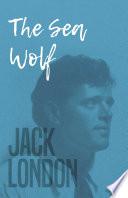
The Sea-Wolf
Jack London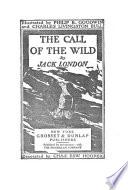
Call of the Wild
Jack LondonIndex:London - White Fang, 1906.djvu
Jack London
Martin Eden
Jack London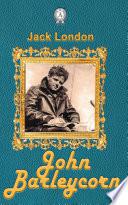
John Barleycorn
Jack London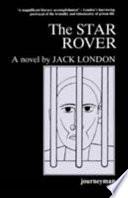
The Star Rover
Jack London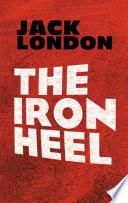
The Iron Heel
Jack London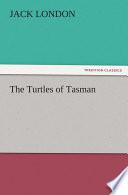
The Turtles of Tasman
Jack London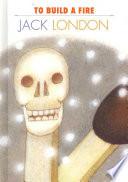
To Build a Fire
Jack London
The Wit of Porportuk
Jack LondonA Piece of Steak
Jack LondonFamous Jack London Quotes
“Don't loaf and invite inspiration; light out after it with a club.”
"Getting into Print", first published in 1903 in The Editor magazine
Variant: You can't wait for inspiration. You have to go after it with a club.
Context: Don't loaf and invite inspiration; light out after it with a club, and if you don't get it you will nonetheless get something that looks remarkably like it.
Context: Fiction pays best of all and when it is of fair quality is more easily sold. A good joke will sell quicker than a good poem, and, measured in sweat and blood, will bring better remuneration. Avoid the unhappy ending, the harsh, the brutal, the tragic, the horrible - if you care to see in print things you write. (In this connection don't do as I do, but do as I say.) Humour is the hardest to write, easiest to sell, and best rewarded... Don't write too much. Concentrate your sweat on one story, rather than dissipate it over a dozen. Don't loaf and invite inspiration; light out after it with a club, and if you don't get it you will nonetheless get something that looks remarkably like it.
“Life is not always a matter of holding good cards, but sometimes, playing a poor hand well.”
As quoted in Sacred Journey of the Peaceful Warrior (1991) by Dan Millman, p. 78
Life’s not a matter of holding good cards, but sometimes playing a poor hand well.
As quoted in "They Came to Write in Hawai‘i" by Joseph Theroux, in Spirit of Aloha (March/April 2007)
The Bulletin, San Francisco, California, December 2, 1916, part 2, p. 1.
Also included in Jack London’s Tales of Adventure, ed. Irving Shepard, Introduction, p. vii (1956)
Context: I would rather be ashes than dust! I would rather that my spark should burn out in a brilliant blaze than it should be stifled by dry-rot. I would rather be a superb meteor, every atom of me in magnificent glow, than a sleepy and permanent planet. The proper function of man is to live, not to exist. I shall not waste my days in trying to prolong them. I shall use my time.
"Confession" in Complete Works of Jack London, Delphi Classics, 2013
Variant: Charity is the bone shared with the dog, when you are just as hungry as the dog.
Jack London Quotes about life
“The ghostly winter silence had given way to the great spring murmur of awakening life.”
Source: The Call of the Wild
“Life? Bah! It has no value. Of cheap things it is the cheapest.”
"The Sea-Wolf" (1904)
Jack London Quotes about men
“Intelligent men are cruel. Stupid men are monstrously cruel.”
The Star Rover
Variant: Intelligent men are cruel. Stupid men are monstrously cruel
The Call of the Wild (1903)
What Life Means to Me (1905), in Revolution and Other Essays (Macmillan, 1909)
Van Weydon discovers Wolf Larsen's astonishing array of reading matter. Chapter Five
The Sea-Wolf (1904)
“Too much is written by the men who can't write about the men who do write.”
Source: Martin Eden (1909), Ch. XXXII
Jack London: Trending quotes
Variant: "I shall not waste my days in trying to prolong them. I shall use my time." also mentioned as Jack London quote in Ian Fleming book You Only Live Twice (1964), Ch. 21 : Orbit
Source: San Francisco Bulletin in 1916. Also included as an introduction to a compilation of Jack London short stories in 1956.
“He does not lose anything, for with the loss of himself he loses the knowledge of loss.”
Wolf Larsen, Chapter Six
The Sea-Wolf (1904)
Jack London Quotes
"A Piece of Steak" in The Best Short Stories of Jack London (1962) ISBN 0-449-30053-6
Source: John Barleycorn (1913), Ch. VI
Source: Martin Eden (1909), Ch. VIII
Context: It was just such uniqueness of points of view that startled Ruth. Not only were they new to her, and contrary to her own beliefs, but she always felt in them germs of truth that threatened to unseat or modify her own convictions. Had she been fourteen instead of twenty-four, she might have been changed by them; but she was twenty-four, conservative by nature and upbringing, and already crystallized into the cranny of life where she had been born and formed. It was true, his bizarre judgments troubled her in the moments they were uttered, but she ascribed them to his novelty of type and strangeness of living, and they were soon forgotten. Nevertheless, while she disapproved of them, the strength of their utterance, and the flashing of eyes and earnestness of face that accompanied them, always thrilled her and drew her toward him. She would never have guessed that this man who had come from beyond her horizon, was, in such moments, flashing on beyond her horizon with wider and deeper concepts. Her own limits were the limits of her horizon; but limited minds can recognize limitations only in others. And so she felt that her outlook was very wide indeed, and that where his conflicted with hers marked his limitations; and she dreamed of helping him to see as she saw, of widening his horizon until it was identified with hers.
"Getting into Print", first published in 1903 in The Editor magazine
Context: Fiction pays best of all and when it is of fair quality is more easily sold. A good joke will sell quicker than a good poem, and, measured in sweat and blood, will bring better remuneration. Avoid the unhappy ending, the harsh, the brutal, the tragic, the horrible - if you care to see in print things you write. (In this connection don't do as I do, but do as I say.) Humour is the hardest to write, easiest to sell, and best rewarded... Don't write too much. Concentrate your sweat on one story, rather than dissipate it over a dozen. Don't loaf and invite inspiration; light out after it with a club, and if you don't get it you will nonetheless get something that looks remarkably like it.
“Show me a man with a tattoo and I'll show you a man with an interesting past.”
Variant: Show me a man with a tattoo and I'll show you a man with an interesting past.
“To be able to forget means sanity.”
Source: The Star Rover
“Love, genuine passionate love, was his for the first time.”
Source: The Call of the Wild
“A man with a club [bat] is a law-maker, a man to be obeyed, but not necessarily conciliated.”
Source: The Call of the Wild
“No, sir. Go to hell sir. It's the best I can do for you sir.”
Source: The Call of the Wild
“The function of man is to live, not to exist.”
Variant: The proper function of man is to live, not to exist.
“So that was the way. No fair play. Once down, that was the end of you.”
Source: The Call of the Wild
Ernest, Chapter One
The Iron Heel (1907)
"To Build a Fire" published as a collection of short stories in the book Lost Face (1910)
Wolf Larsen, Chapter Six
The Sea-Wolf (1904)
“I do not live for what the world thinks of me, but for what I think of myself.”
Letter to Charles Warren Stoddard (21 August 1903)
“Age is never so old as youth would measure it.”
"The Wit of Porportuk" in The Best Short Stories of Jack London (1962) ISBN 0-449-30053-6
“I was five years old the first time I got drunk.”
Source: John Barleycorn (1913), Ch. III
"An Odyssey of the North" in The Best Short Stories of Jack London (1962) ISBN 0-449-30053-6
The Call of the Wild (1903)
Source: The Sea-Wolf (1904), Chapter Two
Source: Martin Eden (1909), Ch. XXXII
“He was not immoral, but merely unmoral.”
Source: The Sea-Wolf (1904), Chapter Ten
Source: John Barleycorn (1913), Ch. II
So cast it in."
Source: The Sea-Wolf (1904), Chapter Three
Source: The Sea-Wolf (1904), Chapter Ten
Source: The Sea-Wolf (1904), Chapter Six
